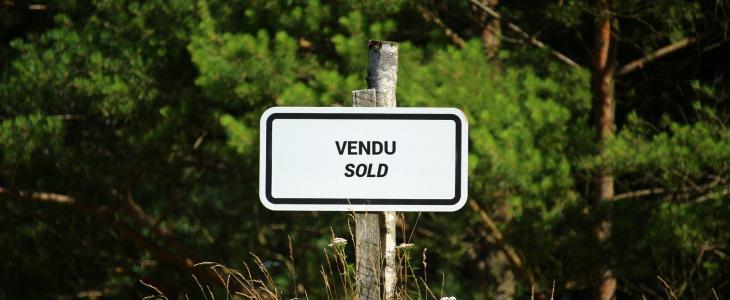How to buy a forest
When you are setting out to invest, you will have a lot of questions, especially about the different stages of the buying process. Our aim here is to summarize the property – in this case a forest – purchase process.
A forest – a property asset
In legal terms, a forest is a property asset, just like agricultural land, a building plot, an apartment, a condo or a house.
Once you have visited the property and have decided to buy, you will start to negotiate the sale with the seller. Once these negotiations are over, an agreement will be drafted.
First of all, we need to remember that a sale is only accepted once everyone has agreed on the content and the price. The sale then generates a number of rights and obligations for both parties. It is subject to a specific legal regime (in France, Vente d’Immeuble or ‘sale of property’), certain clauses of which can be adapted on agreement of both parties.
Different ways of materializing an agreement
When there is an agreement on the above-mentioned characteristics of the sale, a letter of intent to purchase or an offer to purchase will be drafted and signed by the buyer, and countersigned by the seller, if they agree. This will set out a description of the property for sale and the full sales price of the transaction (including the notary’s fees, agency fees, or any other applicable cost). With a letter of intent to purchase, the terms of the sale are only defined at the time of signature of a preliminary contract, but it binds the parties to the transaction.
The preliminary contract – which can take one of various forms in France (a promesse de vente or commitment to sell, a promesse d’achat or commitment to purchase or, most often, a compromis de vente or provisional sales agreement) – records the transaction in a private deed. It is then subject to one or several conditions precedent. The preliminary contract also sets the terms and conditions of the sale, particularly concerning the drafting of the public deed. The provisional sales agreement has the effect of a sale but the property is only transferred at the time of signature of the public deed. If the conditions precedent are not met, the parties will be released from their commitment.
The provisional sales agreement is usually signed at the premises of the agent who drafted it, but it can also be sent in a series of emails or letters, which each of the parties signs in turn.
The notary’s role
Once the preliminary contract has been signed, the case is referred to the notary instructed with enforcing the sale.
 A sale may be completed by one or several notaries, in respect of the parties’ choice. There is no extra charge because when several notaries are involved, they share the fees. Very often, the buyer and the seller prefer to appoint their own respective notary. However, this regularly affects the timeframe of the sale as it takes more time to coordinate the various parties. It is worth noting that a notary is independent and cannot favor one client over another, regardless of whether they are working alone or with others on a case.
A sale may be completed by one or several notaries, in respect of the parties’ choice. There is no extra charge because when several notaries are involved, they share the fees. Very often, the buyer and the seller prefer to appoint their own respective notary. However, this regularly affects the timeframe of the sale as it takes more time to coordinate the various parties. It is worth noting that a notary is independent and cannot favor one client over another, regardless of whether they are working alone or with others on a case.
The notary will take care of the usual formalities:
- request for urban planning information (municipal council, etc.)
- discharge of any preemptive rights (S.A.F.E.R - the rural development and land use organization – municipalities, state, etc.) or preferential rights (neighbors, the municipality, etc.)
- search for ownership titles, easements, real rights over the properties sold, mortgages or registrations undertaken, before drafting the final deed of sale in full knowledge of the situation, to prevent subsequent disputes over ownership rights or the settlement of any debts concerning the property. This explains why there is a certain lapse of time between the provisional agreement and the sale (usually two to three months), but it ensures that once the sale has been signed, the new owner can enjoy peaceful, publicly recorded ownership with no dispute arising.
Once the deed of sale has been established, the notary will contact their client(s) to set a date for the signature, at his office.
The parties must be present, or otherwise delegate their authority to sign to a third party (a close friend or family member or an employee of the notary’s office) if they really cannot attend or are based far away.
Once a date has been set, the notary will ask the buyer to release their funds; the latter will transfer the amount due for the sale to the notary’s account before the appointment for the signature. After signature of the official deed before the notary and the transfer of property, the notary transfers the funds to the seller’s account. The buyer will then have full enjoyment of their property.

The notary then takes care of the remaining formalities. i.e.
- publication of the rights (land recordation)
- the payment of the transfer tax
- settlement of the negotiating fees (realty agency), etc.
The ownership title is sent to the buyer when it is received from the mortgage registry office (dates vary from one office to another). This usually takes between six and twelve months.















